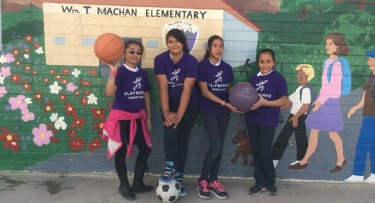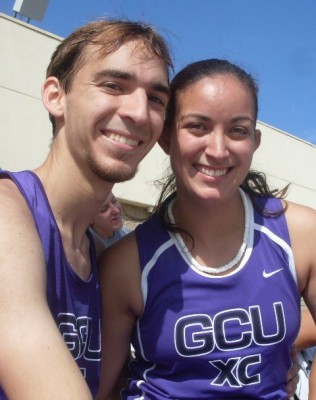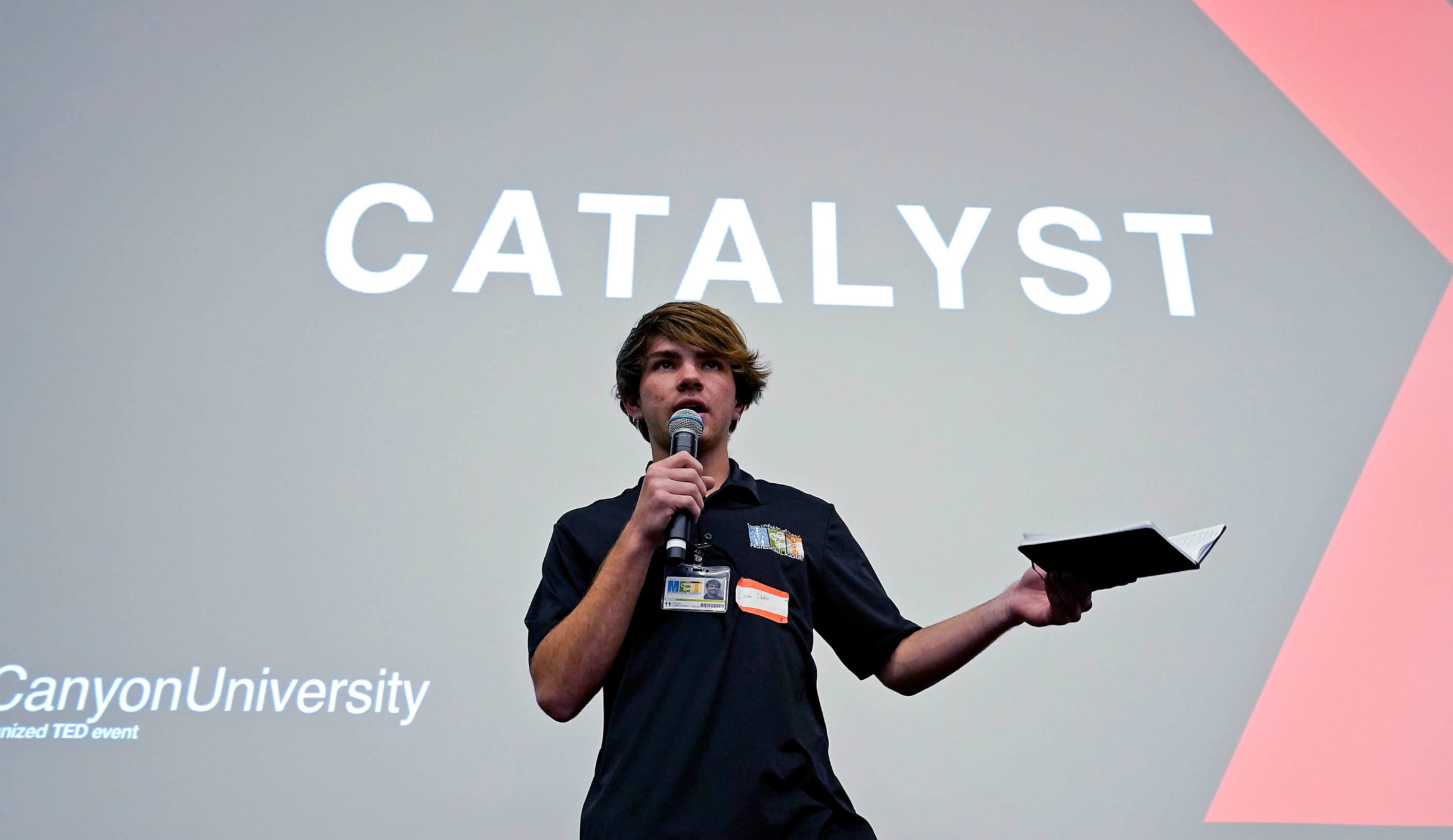By Janie Magruder
GCU News Bureau
Photos courtesy of Evelia McClarty
You have to wonder what aliens would think about an activity that happens on the playground of William T. Machan School dozens of times a day.
Without a word, children stop in mid-play, face each other with one palm open and the other hand formed into a ball, and smack the bottom of their fist onto their open palm, once, twice, three times. On the fourth smack, they keep the fist, flatten the hand or make a sideways peace sign with their index and middle fingers.
Rock smashes scissors, scissors cut paper, paper covers rock. Disagreement solved.
The childhood game is among the simple strategies advanced by Playworks, a nonprofit organization that aims to bring safe, fun, inclusive games to elementary schools. Playworks operates in 360 schools in 22 cities, including Phoenix and Yuma, where it has trained and embedded program coordinators, called coaches, into the school day.
The Arizona Playworks coaches, among them Grand Canyon University alumna Evelia (Stacey) McClarty, and her husband, T.J., work with all grade levels, kindergarten through fifth grade. Evelia McClarty is at Machan, while T.J. McClarty, who attended GCU, is at Creighton School, also in Phoenix.
In addition to teaching new games, such as Band-Aid tag or shipwrecked, the coaches train fifth-graders as junior coaches who act as peer playground monitors. They learn skills such as listening, leadership and morale-building and to recognize signs of bullying and deal with bullies.
On May 9, GCU will host a conference and commencement ceremony on campus for as many as 180 junior coaches. From 10 a.m. to 2 p.m., the children will do team-building activities, receive their diplomas and see what being on a college campus is like.
Dr. Kimberly LaPrade, dean of the College of Education, was among GCU officials who visited Loma Linda School earlier this semester to see PlayWorks in action.
“We saw children managing themselves in very organized ways, and we saw teachers playing with the students," LaPrade said. “That
was so good to see because sometimes teachers are so busy managing the environment that they don’t have time to engage with the students in play.”
According to Playworks statistics, Playground incidents at Loma Linda dropped by 89 percent in 2012-13, from the previous academic year, and the number of students referred to the principal’s office from the playground fell 43 percent during the same period. A school pays nearly $30,000, about half of the program’s annual costs, to have a Playworks coach on site.
“This program is giving students lifelong skills in conflict resolution, how to use your words effectively, how to support other teammates, and how to be more active and healthy,” LaPrade said. “And what you see on the playground is coming into the classroom and taking some of the disciplinary problems off the teachers.”
In addition to hosting the commencement, GCU is supporting Playworks by encouraging COE students to do internships with the organization, she said.
Evelia McClarty, whose degree from GCU is in athletic training, relies on 15 junior coaches, eight girls and seven boys, to help her monitor the 600 Machan students at recess. They put up cones for soccer or kickball, hand out basketballs and hula hoops, and mediate disagreements.
The junior coaches earn fake money to purchase school water bottles, pick small toys from the treasure box or have lunch with a teacher. Xochitl Ocegueda, 11, a Machan junior coach, has learned greater confidence in dealing with arguments and to toe the line between being too nice and too strict.
“I see kids being more active, being happy and laughing, and that makes me happy, too,” she said.
T.J. McClarty and his junior coaches, including Johnny Rodriguez, 11, spend more time than you’d think resolving spats among first-graders.
“First-graders have personal space issues,” he said, gently wiggling his fingers to demonstrate the “butterfly tag” the kids are taught to apply only to the arms, shoulders and backs of others when playing tag. “They tend to be in each other’s boundaries, and they don’t quite understand the bubble yet.”
Conflicts among preteens are far more verbal, T.J. McClarty said. “We teach them to be positive and encouraging of others so it doesn’t get to taunting.”
Johnny, who relishes being a role model for younger students, said his proudest moment as a junior coach this year came when one of the younger children reported to him that a game of “chicken fight” was happening on the monkey bars, and asked him to do something about it.
“I want to show kids not to bully, just to play with each other,” he said.
Contact Janie Magruder at 639.8018 or [email protected].
























































